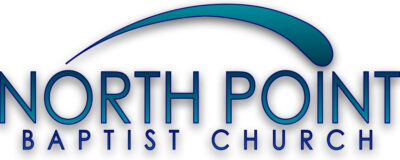October 29, 2020
The God that Answereth by Fire
I Kings 18:17-46
Eljah was unique among the prophets. Obadiah was supporting no less than one hundred of them; but, one and all, they cowered in a cave in fear for their lives. Much good they were doing! Not so Elijah. He was made of sterner stuff, He was a veritable Melchizedek among the prophets, presented, as it were, without father or mother, without beginning or ending of days, a prophet of the Most High God.
Summoned into his presence, the weak and wicked king Ahab tried bluster and bravado. Elijah shut him up. “Get your priests and people to Carmel,” He demanded. “We’ll put things to the test.” And, for the moment, more afraid of Elijah than of Jezebel, Ahab agreed. After all, Ahab thought, what could one lone man do against four hundred fifty priests and prophets of Baal? Not much!
We look first at the cult. The ministers of its foul and fierce rituals were an unholy crew. The hideous and polluted apostasy they chaimpioned, had it won the battle on Mount Carmel that day, would have obliterated the name and memory of Israel from the roll call of the nations. The terms of the contest were simple. The four hundred fifty prophets of Baal were to be given a bullock. And Elijah was to have one, too. Each in turn would sacrifice their animal and place it on the altar. Then the god that answered by fire would be acknowledged to be God. In growing despair, the false prophets of Baal worked themselves into a frenzy. Elijah stood by and mocked them with a fine flow of sarcasm. There lay their dead bullock on its bed of wood. There in the long past its meridian, their Zidonian sun god was sinking into the Baal’s prophets and priests cried aloud. They slashed themselves. They worked themselves into a frenzy. All in vain. The sun continued to sink, unmoved by it all.
Now let us look at the crowd, All day long they had watched the antics of the Baal cult. Now it was Elijah’s turn. Calmly he repaired an old mountain altar. Then deliberately he slew his bullock. He placed it on the altar, Around the altar he dug a wide trench. Then he had twelve barrels of water poured all over the altar and filled the trench as well. The crowd gathered around as the evening shadows began to steal across the sky. Then Elijah prayed. The fire fell. It was a good thing for the people there that day that a sacrifice lay there upon the altar dressed and ready for the fire. “Our God is a consuming fire,” the Bible says (Heb, 12:29), And so He is. The flame descending from on high would have landed on the people and consumed them all had there been no altar there. Instead, it fell upon the sacrifice. In type and symbol Elijah put the cross between that holy God in heaven and that sinful people on earth. The only ones who died that day were the prophets of Baal, slain by Elijah for the wickedness they had wrought.
Then came the cloud. The great tribulation was over! Elijah, who had just appealed to heaven for fire, now appealed to heaven for rain, “He prayed, the Holy Spirit says. He and his servant divided the task. The servant was to watch; Elijah was to pray. And so he did, until a cloud like a mans hand appeared in the sky, until the prophet’s upraised hand left its imprint on the sky. Then down came the rain.
Obadiah s hidden prophets did not bring the rain that day. Elijah did, They could not have brought the fire either. God does not give the key of heaven and power over the forces of earth to such as they.
